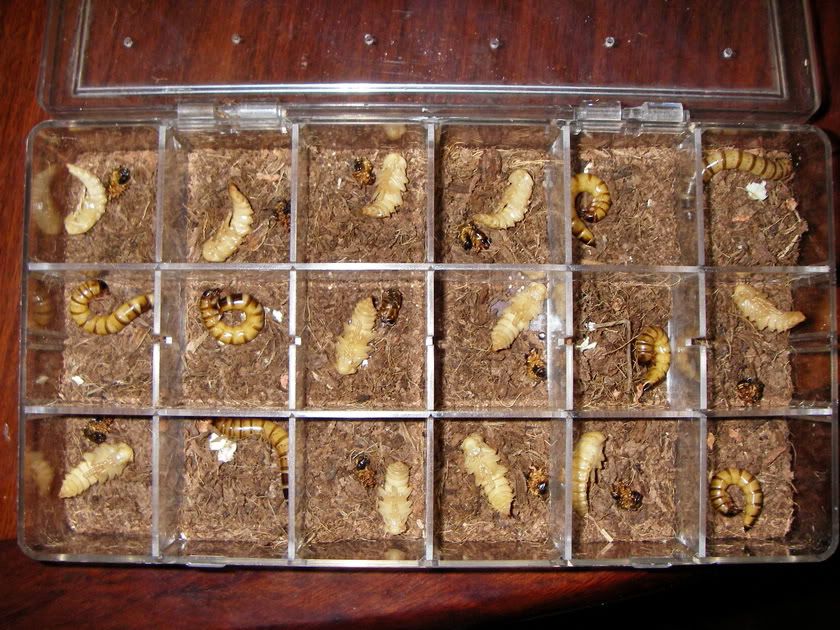- Joined
- Jan 6, 2007
- Messages
- 2,518
Why it is cool to see people using the search function. Especially when it is a thread that I started!Sorry to bring this one back...
Why it is cool to see people using the search function. Especially when it is a thread that I started!Sorry to bring this one back...
I would suggest mealworms over crickets and and roaches over mealworms. As to your question, I have no experiencce feeding meal worms to slings just baby roaches.Searching makes for less trouble!
I had a great experience with superworms and just the opposite with mealworms. Gah I hate those things.
Would you suggest mealworms instead of crickets for the two tarantulas when they're young? I want to move to superworms but good God I hate crickets. They smash up easily, drown easily, eat each other incessantly, are loud...it's a world of trouble.
Small superworms or cut up segments of same work for slings as well as any other feeders I keep.
The issue I've run into is that the colony seems to coordinate itself into cycles and you eventually end up with mostly similar sized worms in any one colony. The only way I've gotten around this is to have a few colonies going simultaneously, started at staggered intervals. I have also noticed this to a lesser degree with mealworms.
I currently keep four different species of roaches in addition to the super and meal worms and still end up buying crickets because everything I feed won't eat the other stuff all the time. If you don't try offering crickets (or any given alternate food) then you really have no way of knowing whether the critter your feeding isn't hungry at that time or simply doesn't want what your offering.
I see countless examples of this all the time and there appears to be no discernible pattern as to what will eat what, when. This includes not only my reptiles, T's, fish and the feeders themselves but even my parrots and chickens. Nothing replaces variety....
Bill
I've found they are highly cannibalistic...surprised you got babies from them with the adults still there.As noted by others, I too became annoyed with the sound of adult crickets chirping. In fact I would literally hunt down the native ones in my house at night just to shut them up.
I did alot of work outside, and I kept noticing when I moved large items there were often dozens of camel crickets (aka cave crickets or spider crickets or even "sprickets")
The one thing I noticed is that they don't chirp! So I gethered about 8 females and 2 males. I put them in a 10 gallon aquarium with about 2" of play sand, a feeder dish and about 15 toilet paper tubes. They were fed potato slices and/or orange slices and rolled oats and other grains. It took about 4 weeks until I noticed little pinheads runing around!
The cool thing about these crickets is that they will throw their hind legs really easy, making them great prey items for slower, or even injured/ill herps and spiders. Their bodies are fairly soft without a lot of shell. AND the best part of all, they don't chirp!
So if you live on the east coast, you will probably find these running around in your basement or under large rocks, or even in your outside water cutoff box!
I think the fact that I provided lots of hiding spots prevented cannibilism. And I kept the sand damp, but not wet. Another thing, they like cool and damp, so no additional heat is necessary.I've found they are highly cannibalistic...surprised you got babies from them with the adults still there.
But I agree, they would be an excellent T food. I'm surprised no one has tried. I need to catch some myself.
what do you do to get a super worm colony going? Mine always died but I kept them with the meal worms.

If you dont feed them protien theyll start eating each others wings and then theyll start eating the nymphs, they crave protien and its manditory for thier diet, i just feed them dog food they love it and it wont rotalthough I avoid giving them animal protein such as meat, cheese, and so on. Don't know why but it feels wierd giving them such.
My China!That is some great info. I have been wanting to get a colony of B dubia for quite some time to add variety to my T's diet. However, I just cannot find them here by me.